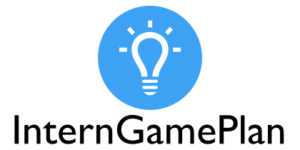One way of preventing burnout is through building a robust system that prepares you for applications, helps plan your day, and gets you through the toughest tasks with more ease. Five ways you can enhance such a system involves (1) using Google Calendar to block out time, (2) dividing and conquering application season components, (3) finding time for laser focus, (4) planning/tracking your day, and (5) having the discipline to slow down before overheating the human-machine.
Intro
The most useful way I found in preventing application season burnout was being structured and systematic in the way I approached work. As James Clear says: “You do not rise to the level of your goals. You fall to the level of your systems.” In this post, I talk about 5 simple techniques that helped me build a system to balance application season with all the other potentially overwhelming aspects of university life.
Use Google Calendar to block out time
Firstly, block out time to keep consistent with application season
Block out time for non-urgent, but highly important aspects of application season such as:
- Building your commercial awareness portfolio
- Mastering technicals
- Preparing cover letters for places you know are about to open so that you can drop everything and apply ASAP when they open
- Using JobTestPrep or reflecting on previous online tests to prepare for the psychometric components of each application
- Reaching out to friends to carry out two-way mock interviews
A lot of application season is spontaneous i.e. when you have a first or second-round interview or assessment centre, you need to drop most things and strongly push preparation, but the biggest competitive advantage you can form around yourself is through keeping consistent. So don’t let commercial awareness or technicals get rusty by consistently practising these among other non-urgent but highly important components.
Then block out time for other important commitments
The next blocking out of time applies to pre-determined commitments you have e.g. social activities, lectures, seminars, society and sports events, gym, cooking etc.
Committing to society events are critical for your wellbeing in meeting new people and building a more unique character that at the very least will help you stand out in application season. Although I did balance applications with joining societies, I regret neglecting the sport/gym component thinking that it would come at the opportunity cost of submitting and preparing for applications.
If I could go back, I would implement a regular exercise-related schedule as they massively reduce the risk of burnout altogether – something I never accounted for in that ‘opportunity cost’ perspective. It also goes without saying that the endorphins, optimism and increased energy levels from a regular exercise or sport routine is more likely to enhance than hinder application productivity.
After your society and/or exercise commitments, you need to block out lecture, seminar and study times.
As a side note, I unequivocally advocate for prioritising applications over your studies simply on the basis that securing an insight week, internship or full-time role is going to have a much larger impact on your future than getting a higher 2:1 or higher first in your degree. At the same time, take this advice with a pinch of salt since you should still have enough time to go to all seminars, all lectures and spend at least another half of that time revising e.g. if you have 2x1hr lectures and a 1hr seminar, you should at least aim to study another 1.5hrs in that week on the given module.
For first-year students where your degree counts little towards your overall degree, the prioritisation of applications should be much stronger, even if you do it only to learn the ropes for internship applications. However for second years that are usually facing the toughest year of their degree, paying your ‘study tax’ of going to each lecture and seminar is key. The limited module options of second year can sometimes cause the second year of a degree to be most difficult e.g. where an economics student is forced to take econometrics but can avoid this in final year. The cost of not putting consistent work into your degree throughout terms 1 and 2 is an extremely painful study period before exams.
As a final note, unless you really enjoy cooking and see it as a relaxing activity, be efficient with food. I’m not advocating to go out and buy takeaways every day, but instead to cook in bulk and eliminate indecision. Have a minimum of four meals that you can rotate around in the space of about 8 days, cooking once every two days and ensuring that each meal hits all the major nutrient groups. Not only does this structured way of cooking eliminate time, effort and decision making, but also speeds up shopping and adds to that general approach of being strong both physically and mentally, which is key for good mental health during such a stressful period.
Divide and conquer with application season components
As I mentioned above with keeping consistent on technicals and commercial awareness components, segmenting application season components is key. In highly competitive fields, there are just too many components to master to ensure you stand out, so you need to divide them and get each component under control one at a time. This prevents you from getting overwhelmed and getting into the vicious cycle of thinking you haven’t got what it takes.
See the Game Plan Summary for my take on how to divide and conquer for application season.
Find time for laser focus
Make Time is a great book for when trying to get through application season (audiobooks are an efficient way to get through books when juggling many other things). One piece of advice they give is creating a laser focus part of the day. This links to another great book for anyone in university called Deep Work, which talks about the power of developing the ability to work undistracted for several hours of the day (although that is a massive oversimplification of the depth of such a great book).
To build laser focus, you should know your productivity cycle e.g. whether you’re most alert at night or early in the morning and then schedule a few hours in that time each day for your most difficult tasks. Linking to the divide and conquer strategy, this could be for learning technicals, or mastering the ESG commercial awareness component. This will require sacrifice but you will quickly see its immense value e.g. limiting the number of nights out you have in a week to ensure you go to sleep early enough or to work instead of going clubbing.
One way of enhancing laser focus is harnessing Focus music
Alongside the points of your day where you find laser focus, there will be days where you feel overwhelmed and unmotivated to carry on, so finding a few tracks to catalyse your focus mode can be very helpful (instrumental tracks work best as they’re far less distracting).
Some helpful tracks I’ve found include:
- Deus Ex: Mankind Divided soundtrack
- Theory of Everything soundtrack
- Planet Earth II soundtrack
- Hans Zimmer soundtracks
- Imitation Game soundtrack
- Alexis Ffrench playlists
Plan & track your day (professionally)
The single most useful hack I have found in taking control of your schedule is using some kind of spreadsheet (e.g. Google Sheets or Excel) to plan and simultaneously track your time. This could be as simple as tracking general blocks of time that characterise your day using “start-time”, “end-time”, “total time”, “task code” and “description” columns to log time. Then on the right of this tracker before each day, you could list time e.g. from 8am till 10pm and write a couple of words on what you plan on focusing on for each hour. You can also incorporate your to-do list next to this plan.
By keeping your plan and tracker professional using a spreadsheet, you’re more likely to stick to it and feel like you have things under control even when life becomes extremely stressful. Spreadsheets are a great way to track things and this can expand into tracking your application process, which I highly recommend e.g. noting which firms you plan on applying to, whether you have spoken to someone with experience at the firm and so on.
Do not be reckless with the human-machine
Most importantly of all, learn your limits and gently apply the breaks when you move closer to the edge of the cliff (i.e. when you begin feeling more stressed, hopeless and unmotivated).
A stressed-out mindset might encourage you to sacrifice exercise and shorten breaks but even more important than the extra ounce of productivity is to prevent burnout. Burnout is not just a weak mindset that you need to step out of, it is a very real, debilitating frame of mind that prevents you from being able to focus and can take a long time to recover from.

